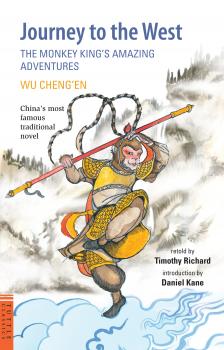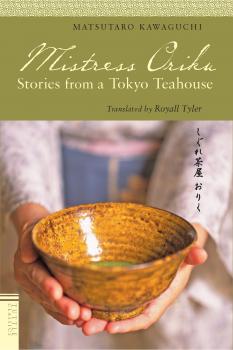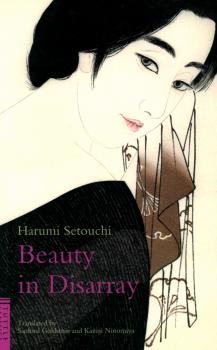ТОП просматриваемых книг сайта:
Tuttle Classics
Скачать книги из серии Tuttle ClassicsАннотация
China's most popular traditional novel, Journey to the West is the thrilling story of the Monkey King and his epic quest, with his trusted companions, to redeem himself. They face fantastic foes, demons and monsters during their amazing adventures traveling to the Western paradise.No matter what obstacle was put before him, the clever, wily Monkey King always got what he wanted-unimaginable strength, eternal life, even his own position in the Celestial Realm with the gods. More than anything else, though, the Monkey King loved mischief and rule-breaking and was sure he was the most powerful creature in the world.But after defeat and punishment for his tricks, the Monkey King found himself wanting some things he never expected: to be disciplined and good enough to help the monk Hsuan Zhang on his mission to bring Buddhist Scriptures-and enlightenment-to China.Readers of all ages will thrill to Timothy Richard's retelling of the Monkey King's exploits-whether in the Dragon King's underwater castle, the Halls of the Dead or the palace of Buddha himself-and find themselves captivated as the Monkey King joins Hsuan Zhang and their companions the Dragon Horse, the Monk Sand and the equally mischievous Pig on the dangerous trek West. Despite the tale's ancient origins, Journey to the West proves as fresh and engaging an adventure as anything written today.
Аннотация
"Royall Tyler's translations are nothing short of superb—crisp, restrained, ably balancing the ribald and the profound."—BooklistSensitive, compassionate, and indomitable, Mistress Oriku has abandoned the pleasure trades of Tokyo to run an elegant teahouse on the city's outskirts. Despite her hopes for a quieter, less hectic life, she finds she can't escape her involvement in the city's creative, intellectual and political circles.Oriku finds herself the subject of unanticipated attention, because along with her passion for music, theater and storytelling, she offers her own invaluable talents: a vibrant appreciation of life, an unparalleled gift for hospitality, and the maturity and sensitivity necessary to instruct young people in the all-important arts of love. Her independent thinking and love of Tokyo's traditions offer a unique perspective on the surprising complexity and contradictions of the Japanese culture of the era.Now available in English for the first time, Japan's beloved Mistress Oriku is filled with clear-eyed nostalgia for the vanished—and entirely captivating—world of old Tokyo.
Аннотация
Setouchi was eminently qualified to write this historical novel on women's liberation in Japan, which had its roots in sexual politics, socialism, and anarchism, movements in decline following the famous massacre after the Great Kanto Earthquake that devastated Tokyo and neighboring prefectures on September 1, 1923. Among those put to death in the frenzied and prejudicial aftermath of the quake was Noe Ito (1895– 1923), the heroine of Beauty in Disarray.Was Ito a selfless «new woman» or a selfish hedonist, a rare woman ahead of her time or a mere victim of her times? Noe Ito is a complex character whom no two readers will view the same way. But all will agree that author Harumi Setouchi has created a remarkable portrait of an exceptional and unusual woman.
Информация о книге
Автор произведения Harumi Setouchi
Жанр Биографии и Мемуары
Серия Tuttle Classics
Аннотация
A classic tale that will captivate lovers of Japan, history, and epic adventure alike. Japan's most celebrated tale of chivalry, loyalty and revenge—and the basis for a Hollywood feature film starring Keanu Reaves— 47 Ronin is the epic tale of a heroic band of Samurai warriors who defy the Japanese Emperor to avenge the honor of their fallen master. The story begins in 1701 when the noble Lord Asano attacks an official at court. His punishment is swift and harsh—the Emperor orders Lord Asano to commit ritual suicide ( harikiri ). His lands are confiscated, his family exiled, and his Samurai warrior brigade is disbanded—becoming Ronin or masterless, wandering renegades. While appearing to follow the Emperor's instructions, the 47 Ronin plot in secret for many years, biding their time until the moment to strike is right. Like the story of the Knights of the Round Table, the Ronin's deeds became legendary, iconic examples of courage, cunning and loyalty in an age when the Samurai were true heroes and honor was something worth dying for. John Allyn's vivid retelling, with a foreword by scholar and film advisor, Stephen Turnbull, presents this epic of Japanese literature in its correct historical context.




